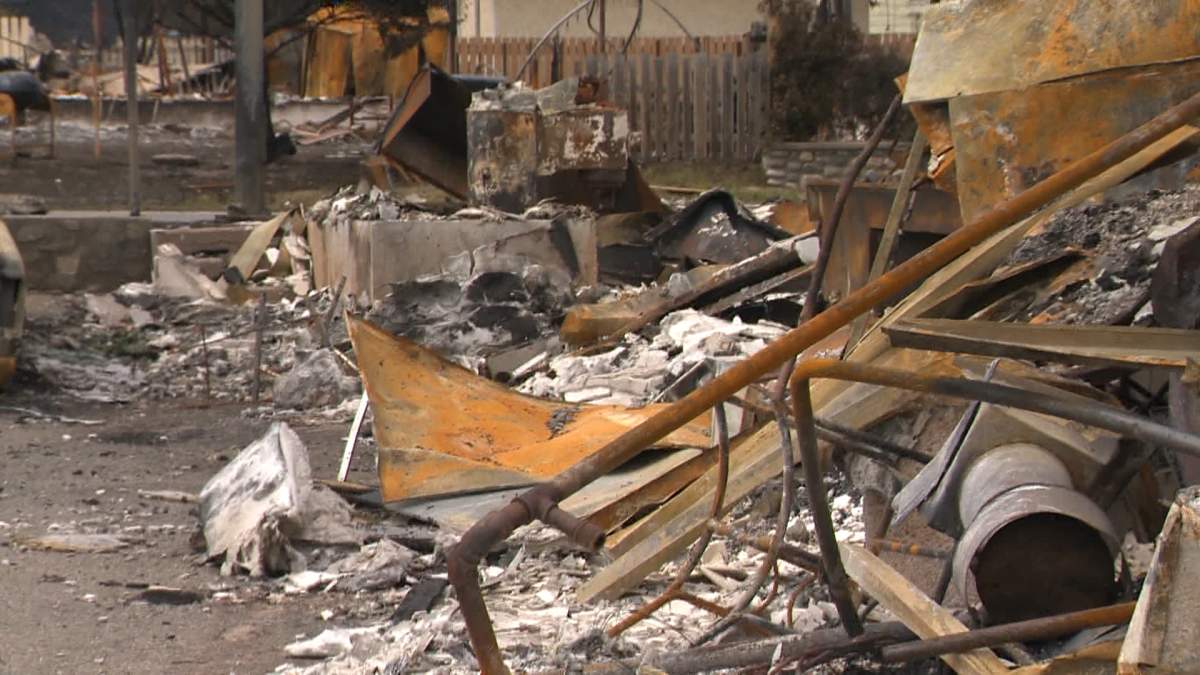The Alberta government announced Monday that it’s building 250 modular housing units in Jasper for residents displaced by wildfire.

The July fire destroyed one-third of the tourist town’s structures, including more than 800 units of housing.
An estimated 2,000 people lost their homes.
Community and Social Services Minister Jason Nixon told reporters that the housing units are to cost the province $112 million and would be rented at or near market rates.
Nixon said the prefabricated modular structures are to be fully assembled off-site by the manufacturer before being transported and placed in the town.
Last week, work got underway to connect four sites in Jasper to essential services like water and power, and Nixon said the first units should be available in January.
“We know that time is of the essence and winter weather is upon us. And we will ensure these interim homes are in place as quickly and efficiently as possible by taking advantage of modular technology,” Nixon said.
“All levels of government are eager to see Jasper rebuilt as fast as possible, and we are seeing progress each and every day.”
Nixon said it’s still being determined how many of the units would be for singles or families.
Jasper Mayor Richard Ireland said eligibility requirements for the homes are still being determined.

Get daily National news
“The priority is to house workers engaged in providing essential services,” said Ireland, adding that many of those workers have been and will continue to be housed in local and nearby hotels until the new units are ready.
“For those workers providing essential services who are now housed in hotels, presumably they will move to the new units,” Ireland said.
“Some hotels have committed until spring. And we understand from this announcement today that we could have residents moving into this interim housing provided by the province as early as January.
If there are several months left, then there will be additional housing made available because of that transition.”
Although the modular builds are meant to be an interim solution, Nixon said the government’s plan is to keep them in Jasper permanently.
Ireland welcomed that news, saying the need for housing in the town was an issue long before the fire.
“Prior to the fire, we had a deficit of about 600 (units) at least,” Ireland told reporters.
“The need was great before the fire — it’s much more pronounced now.”
Nixon said once the town is rebuilt, the province would consider selling all or some of the units or maintaining some as affordable housing.
“Every effort will be made to sell that into the existing Jasper housing market in a controlled way that would not hurt the market,” Nixon said.
“We could be in a circumstance where the taxpayer may profit at the end of it.”
Nixon also announced that an additional 25 modular housing units would be built in Hinton, Alta., about 80 km northeast of Jasper, specifically for the residents of Jasper’s Pine Grove Manor, a seniors home that was destroyed in the fire.
Kristen Chambers, the chief administrative officer of the Evergreens Foundation, which operated the home, said that the new units in Hinton would allow the former Pine Grove residents to rebuild their tight-knit community.
“This investment will bring the displaced seniors community from the Pine Grove Manor to a place where they can once again be familiar and a place with their support network of each other,” Chambers said.
“This is the support that they have been so badly missing since the fire.”











Comments
Want to discuss? Please read our Commenting Policy first.